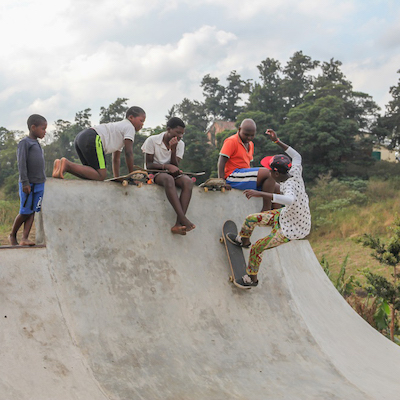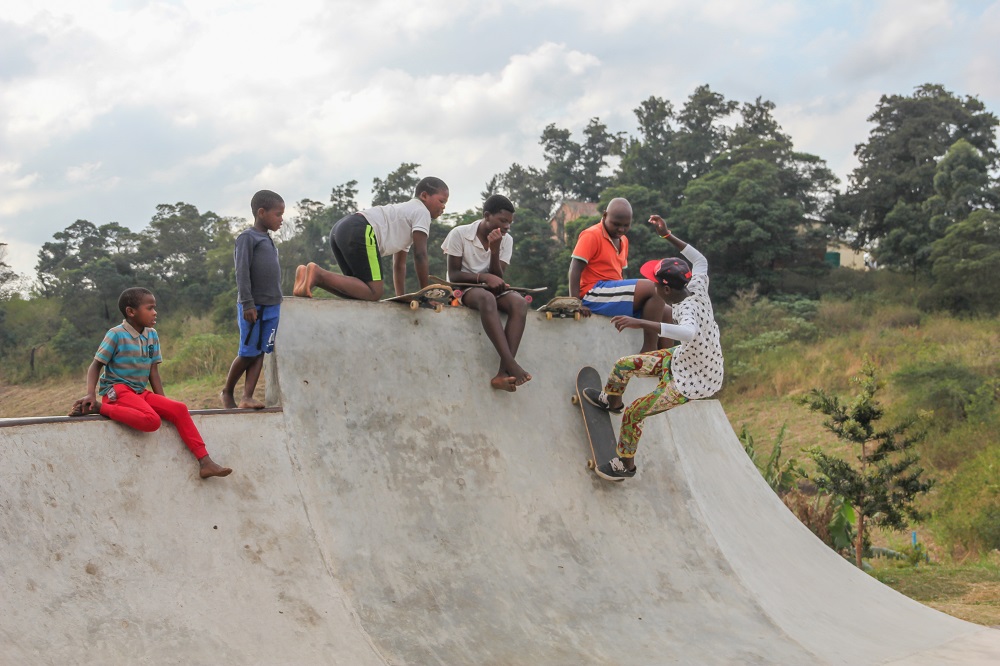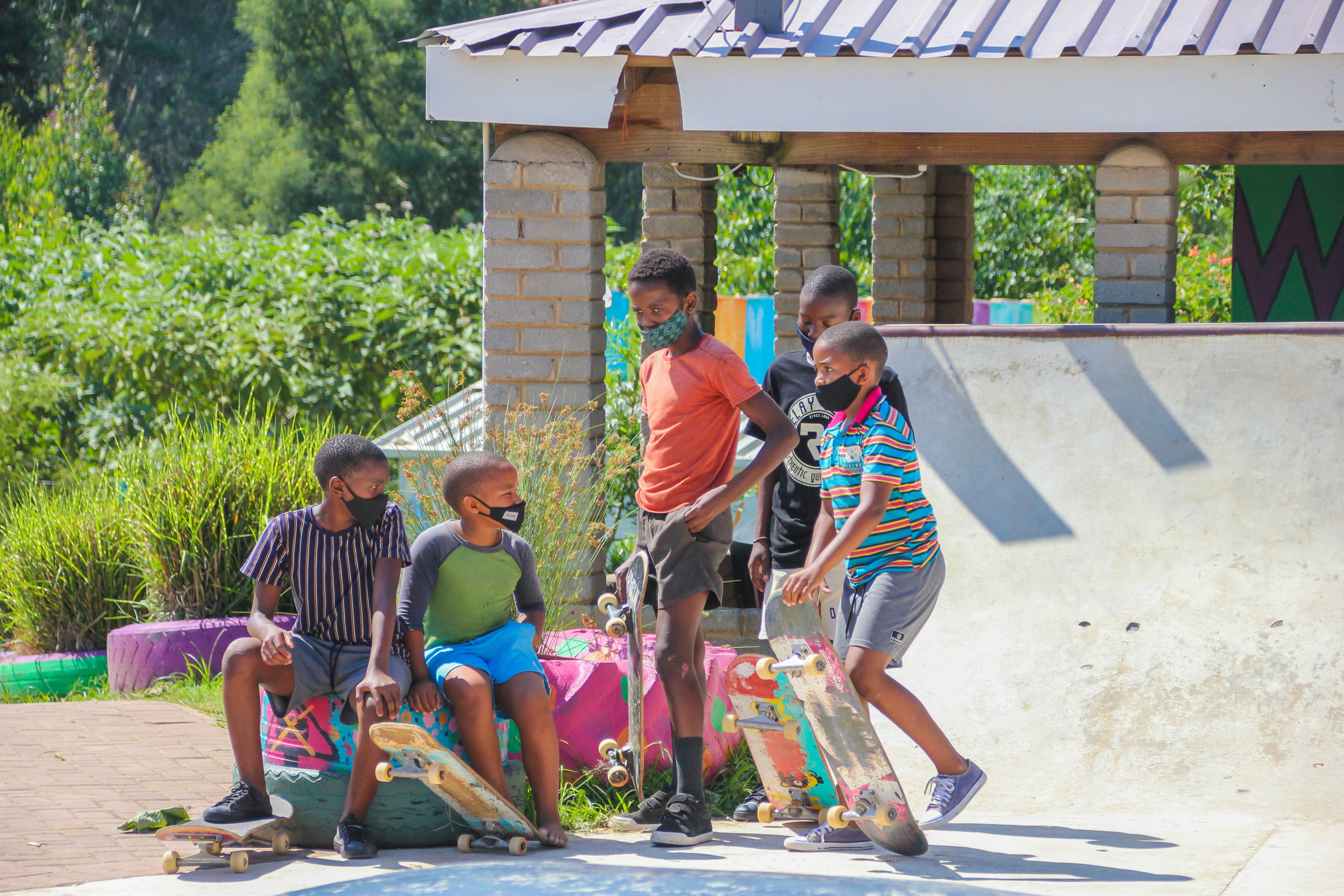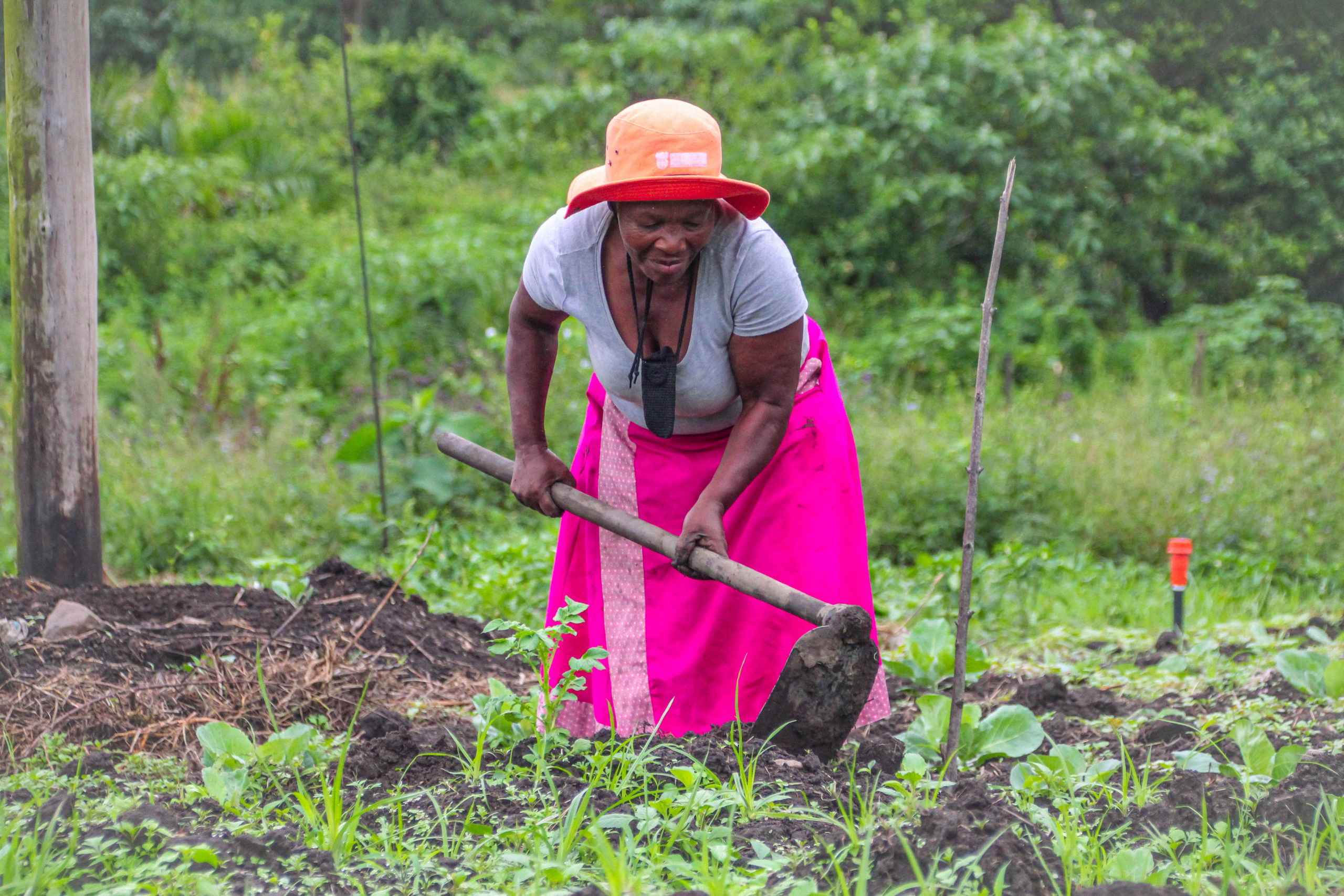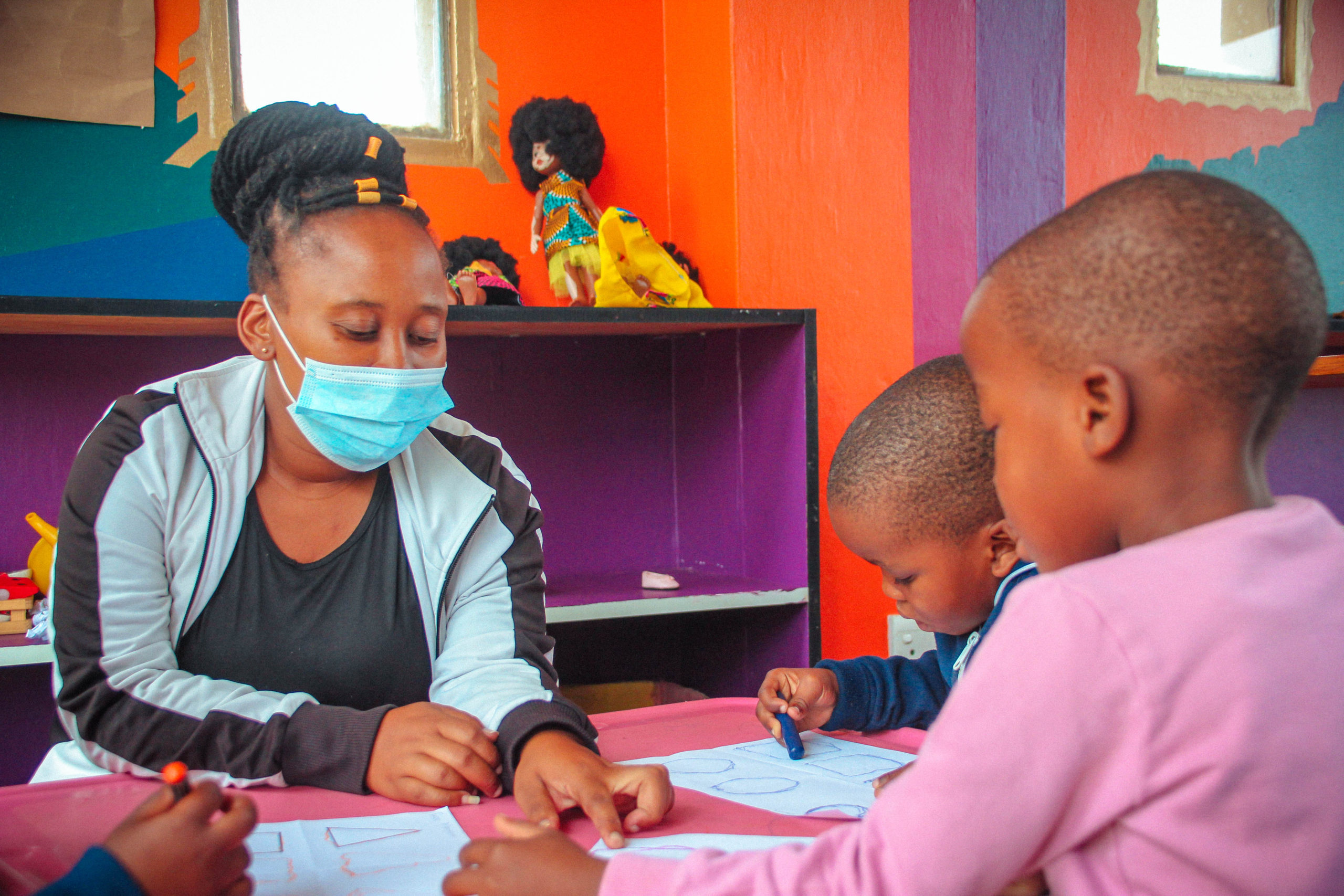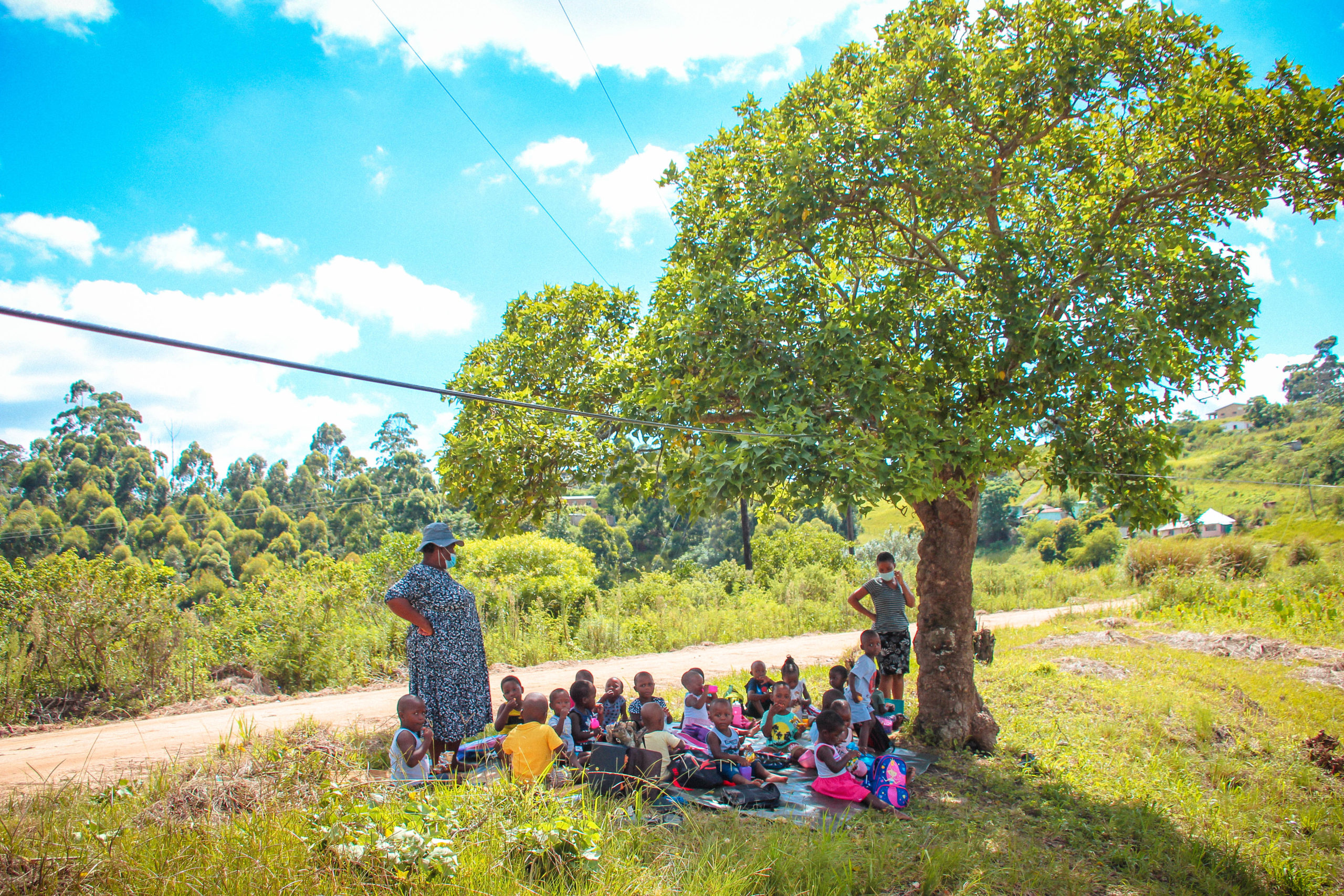Thanda’s Community Centre is home to our skatepark. It is the only space like it for hundreds of kilometres. Most of the local Mtwalume community is a maze of dusty dirt roads that cannot accommodate skateboarding – it truly is a treasured space for everyone, from Thanda’s littlest enrollees right to the older teenagers in the community.
Development and Benefits
We love skateboarding at Thanda for so many reasons. It requires you to develop an internal sense of motivation, accomplishment, and accountability. It also celebrates individuality and promotes confidence and resilience. You set your own goals and are responsible for your own actions and understanding how those actions affect yourself and the other people around you. These values are closely tied to Thanda’s vision and mission in our education initiatives, which is to empower people with the Game-changing Skills necessary for developing children, parents, neighbours, and global citizens.
We see children developing their self-esteem, tenacity, creativity and problem-solving skills as they look for new opportunities on the ramps and various features of the park. The children are constantly exploring new lines and trying new tricks, roaring around the skatepark on one of the communal boards made available to them. Each new trick that they learn opens a new set of possibilities. Can they do the trick faster? Can they do it over the hip? Can they do it fakie (backwards)? Children are forced to apply risk management and critical thinking as they explore what may be possible for them as they advance on their board.
Lessons are not limited to the skatepark either! Children learn can through skating, even if they are not on a board since our Education Initiative curriculum contains themed lessons around one of our favourite storybooks, “My First Skateboard” by Karl Watson. This book is a springboard to all sorts of questions, with corresponding lessons. We dive into discussion questions involving community, adventure, inclusion and diversity.
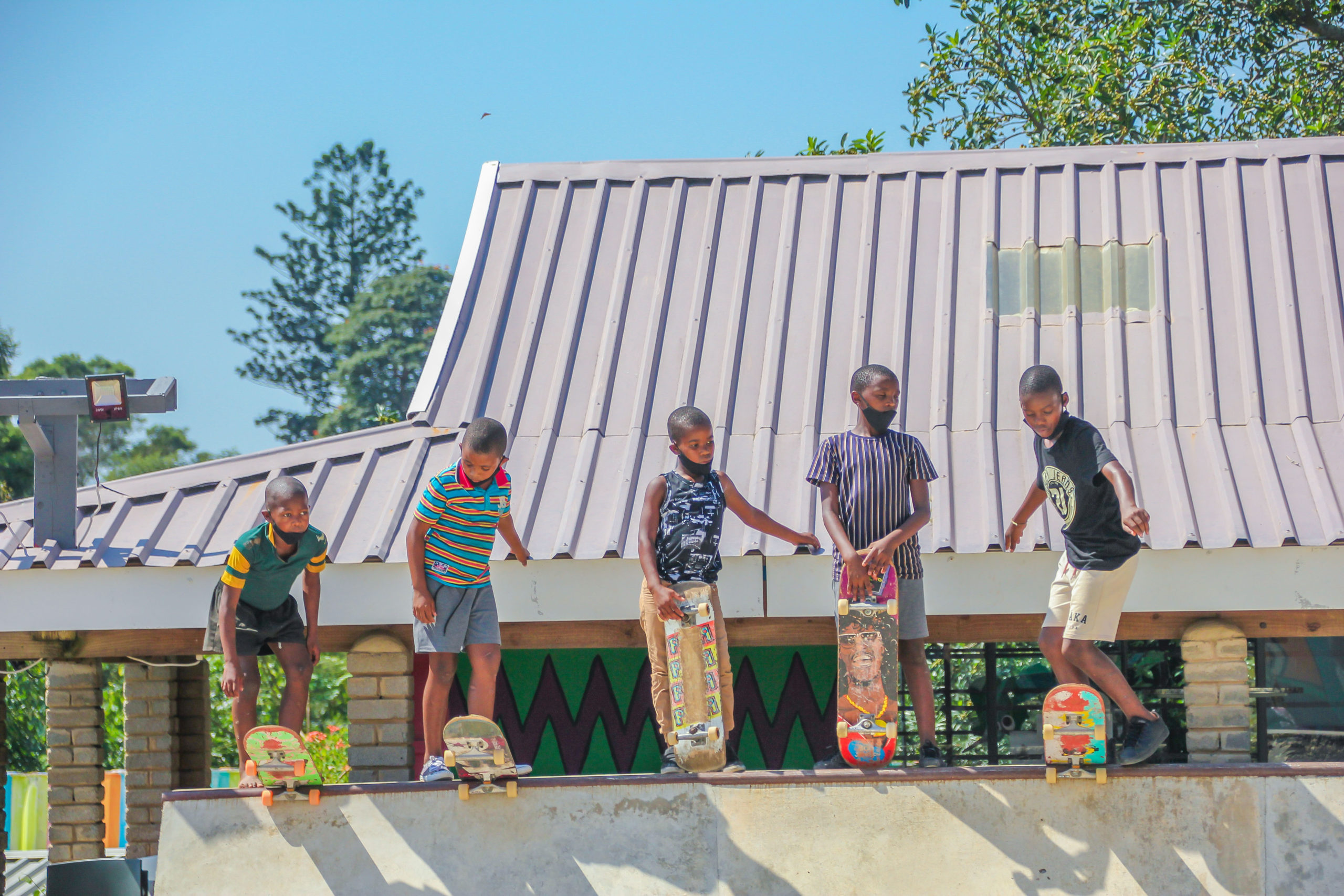
Community Over Competition
At our Community Centre, the “skate culture” fostered by Fortune, our Skate Mentor and the skaters from outside the community who have visited our park has visibly trickled into our avid skaters. When using the skatepark, the kids are aware that everyone is enjoying the park together, and the better skaters make space for the younger and less experienced skaters. Although this can be frustrating when trying to land a difficult trick, one of the core lessons of skateboarding is that we need to share and encourage each other. This is fairly unique in the world of sport. Although many sports foster perseverance, teamwork and a myriad of other helpful life skills, most competitive sports cannot escape the fact that they are fundamentally rooted in competition and dominance over other people. Even other non-competitive sports like surfing often feature strict hierarchies, “us and them” territorialism, and a culture where more experienced participants generally intentionally intimidate beginners or people with less skill or experience. Skateboarding is fairly unique because it doesn’t require an opponent like most other sports; this makes skateboarding incredibly valuable to society as we try to move away from the tribalism of the past into a more inclusive future.
Skateboarding at the Olympics
This year, skateboarding has been included as an Olympic sport for the very first time and we had four South Africans competing in the competition. One of the athletes who represented our country is Dallas Oberholzer, founder of the NGO Indigo Skate Camp and the person who designed the Thanda Skatepark. We really enjoyed supporting him during the competition and are so pleased to see skateboarding receiving recognition on the world stage.
Of course, as an innately non-competitive sport, the inclusion of skating in the Olympics has received mixed reactions. At Thanda our thoughts echo Canadian Olympic skater Andy Anderson who talks about the need to try to beat people as an athlete as creating a sort of moral dilemma for him as a skater. He sees his role as a skater on the world stage as being more about encouraging creativity and reflecting the power of skateboarding than he does about getting a medal or asserting Canadian dominance.
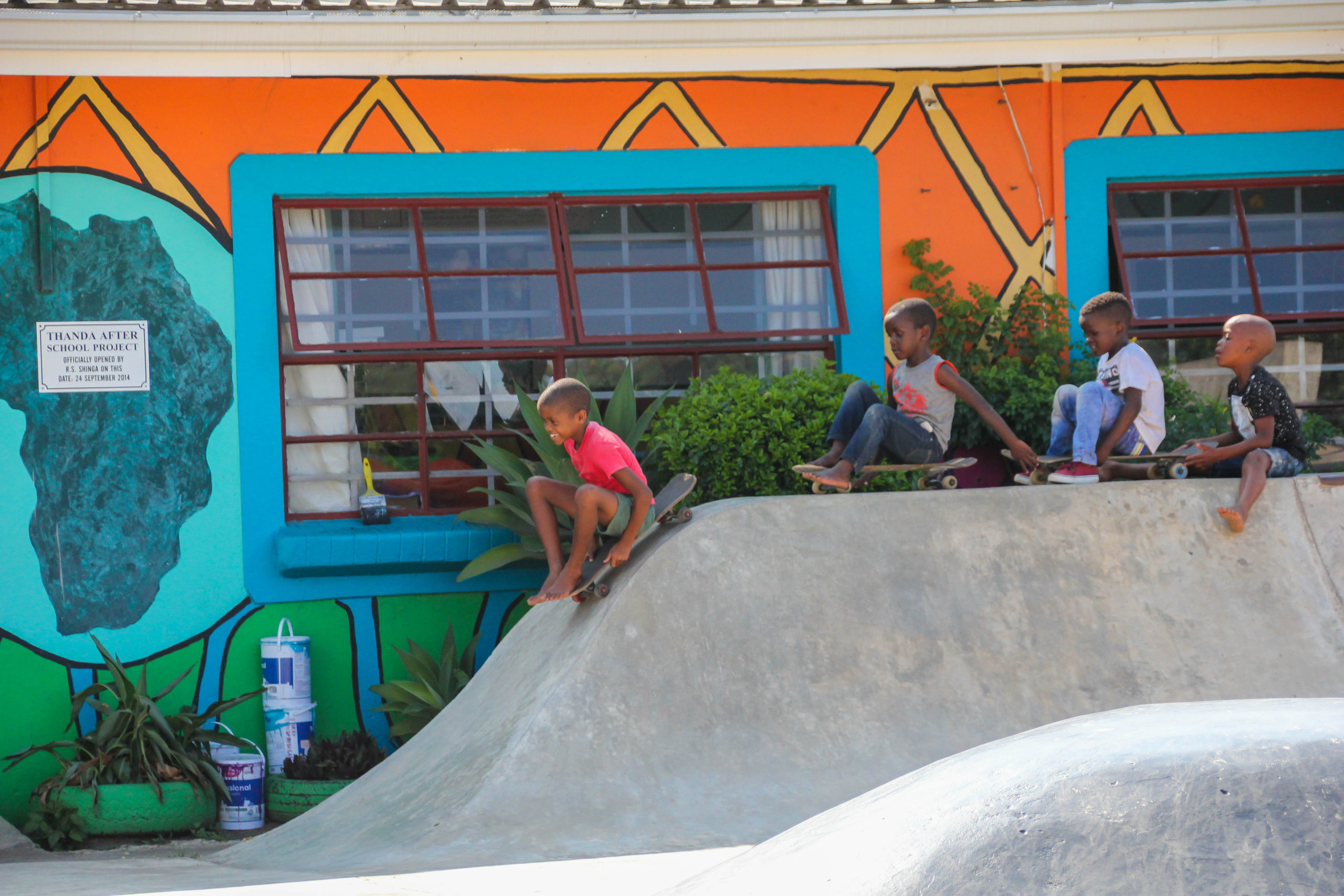
Covid-19
For most of 2020, our Skate Park and Community Centre were closed, in compliance with national lockdown mandates for Covid-19 but in December 2020 we welcomed children back. Sandile, the head of Thanda’s Weekend Programme, explains, “When we opened the skatepark after COVID-19 lockdowns, the response from children has been excellent! There is true culture and passion amongst our skaters, who don’t miss a moment to be out in the park, and we have seen many younger children getting up on their boards and improving their own set of skills. Fortune is here every Saturday and Sunday, setting an example of respect, resilience and confidence on and off the board.”
Ownership
Part of the learning process of skating at Thanda is the maintenance and respect of the boards and fellow skaters. Children can often be seen huddling around skateboards with the trucks and wheels removed as they learn the anatomy of the board and how to keep them rolling as fast as possible. The most beautiful observation is that the children have fostered this culture themselves. Apart from Fortune skating alongside them for passive supervision and role modelling, there are limited rules and intervention from adults. There is no skate “coach” or rule book, and there are definitely no whistles. The Thanda skatepark is the children’s domain and their responsibility, and the adults interact much more as equals than authority figures. Skating has also brought children from surrounding neighbourhoods together, creating common ground and shared love for an outdoor activity they would not typically have been exposed to in a rural community.
We are looking forward to the future of skateboarding, both as an Olympic sport and as an athletic and creative outlet for those of us who aren’t built for competition or time clocks. We at Thanda are grateful to skateboarding for the joy and creativity that it has shared with our kids and hope that it can do the same things for the Olympic games.


